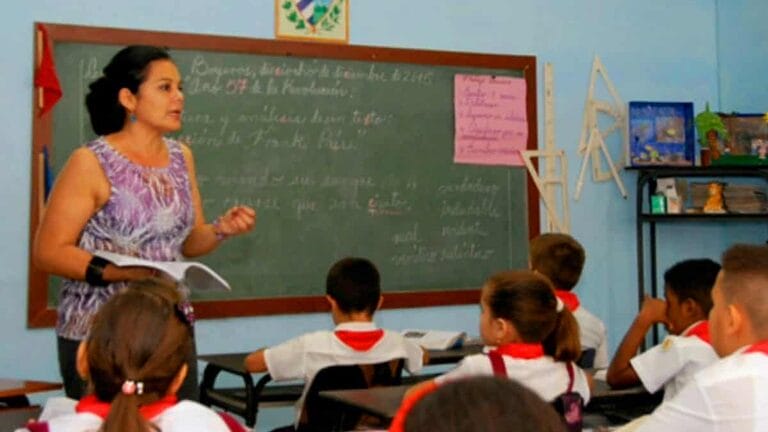The trend in recent days in Cuba is the adjustment of class schedules due to the constant and extensive blackouts. The most recent province to join this "fashionable measure" is Camagüey.
At least in the capital city of that eastern territory, the daily teaching schedule will end right at noon. The measure is taken independently, meaning each school decided to do it based on its own consideration. In this case, these are the Primary Education centers.
The goal, according to Cubanet, is for the children to rest and sleep in the afternoons. At night, it becomes impossible to achieve proper rest considering that almost every early morning the blackouts are prolonged.
Concernón for the course
There are many parents who see this decision as arbitrary. The school year is about to end, and this reduction in class hours could affect the students' academic performance.
Blackouts not only affect the teaching process in each school. They also negatively impact independent study at home.
En tanto, las autoridades de la Unión Eléctrica de la Isla (UNE) han afirmado que los «apagones son temporales». Se estima que en el verano la situación energética mejore, aunque en años anteriores no ha sido así.
During the months of July and August, the hottest of the year, electricity consumption soars significantly. It is a logical factor considering the high temperatures, as well as the more frequent use of household appliances during the peak vacation period.
A los actuales procesos de mantenimiento de varias plantas del país se suma la escasez de combustible para generar energía. Como se conoce, los apagones alcanzan las 16 horas cada día en los miles de circuitos de la geografía de Cuba. Por lo pronto no se avizora una solución a corto plazo.

Llego un barco de combustible, veremos si ahora podemos mejorar, pues esto no hay quien lo soporte